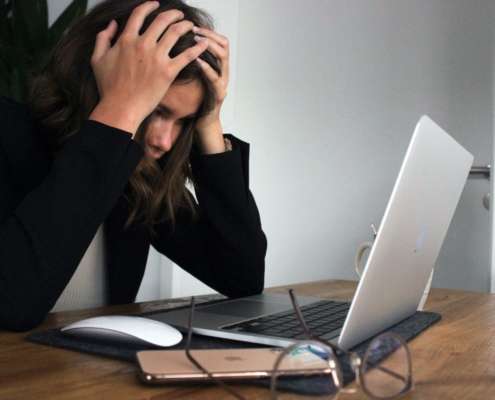Depression Counseling
When everything feels overwhelming
Understanding Depression and the Importance of Early Counseling
Depression can make life feel overwhelming, like living under a persistent dark cloud. It often drains motivation, making it hard to seek help. However, early counseling can prevent depression from worsening and even help lift the cloud.
Depression can arise from things like grief or trauma and, if untreated, may progress into major depression. Fortunately, regardless of the cause, depression therapy is highly effective, providing the support needed to develop healthier behaviors and improved mental health.
Early intervention with a licensed therapist like Jonathan significantly enhances likelihood of recovering from depression. Remember, professional help is available and can make a substantial difference. You don’t have to face this alone.
Physical Symptoms
What your body feels and does
- Lethargy
- Craving carbohydrates like sugar, bread, pasta, and cereal
- Eating too much or too little, or forgetting to eat
- Insomnia or hypersomnia
- Headaches, stomach aches, and body pain, especially in the back, shoulders, and neck
- Poor posture and slouching
Cognitive Symptoms
What the mind feels, thinks and does
- Pervasive sadness
- Irritability and lashing out
- Feelings of worthlessness and hopelessness
- Suicidal thoughts
- Low motivation to do what you know would help
- Loss of enjoyment in activities you used to enjoy
- Withdrawal from friends and family, leading to isolation
- Anxiety and worry
- Pessimism
If you’re experiencing any of these symptoms, don’t hesitate to reach out for help. Schedule an appointment today and take the first step towards feeling better.
Do mood fluctuations mean that I have bipolar depression?
Not necessarily. Everyone experiences normal mood fluctuations, but bipolar disorder involves extreme ups (manic phases) and downs (depressive phases) that significantly impair daily life. Other types, like Bipolar II, have hypo-manic phases that are less drastic but still more intense than normal mood shifts. If you’re unsure, contact a professional to discuss your concerns. Milder versions of mood swings can occur with cyclothymia.
Can depression lead to drug and alcohol use?
While depression doesn’t directly cause drug and alcohol use, the pain it causes is a common reason for self-medication. However, drugs and alcohol can be addictive and often worsen depression. A better approach is counseling, exercise, a healthy diet, meditation, and sometimes medication prescribed by a psychiatrist.
What causes depression?
The causes of depression are diverse. Genetics, neurotransmitter imbalances (like dopamine, serotonin, and norepinephrine), trauma, grief, injury, and major stress can all contribute to depression.
Is depression curable?
Depression is manageable and doesn’t need to be cured like a disease. Exercise, healthy nutrition, hydration, meditation, medication, and even massage therapy can help manage depression. The more consistently these activities are practiced the better the results. Counseling and non-medical methods are typically 2-3 times more effective than medication alone.
How long does depression last?
Depression can be a temporary symptom of something like grief or stress (episodic), or it can be a diagnosed condition like Major Depression or Bipolar Disorder. Even chronic Major Depression and Bipolar Disorder can be effectively managed with talk therapy, a healthy lifestyle, mindfulness practice, and if necessary, medication.
Depression Resources
National Institute of Mental Health – Publication about specifics of depression
NIMH – Overview of depression facts
National Alliance on Mental Health – Useful information regarding symptoms, treatment and support of depression
University of Texas – Austin – Counseling and Mental Health Center information about depression and treating it
National Suicide Prevention LifeLine Live Chat – 1-800-273-8255 is the 24/7 hotline
(512) 472-HELP – 24/7 Texas Crisis Line
Learn about dealing with depression: Depression Articles
Jonathan F. Anderson, LPC-s has worked in the helping profession since he started college in 1990. After completing his Bachelor’s degree at the University of Texas, Austin in 1994, he attended the highly-regarded University of Minnesota to earn his Master’s degree in 1997. He is a Licensed Professional Counselor and is recognized as a Board Approved Supervisor by the State of Texas Board of Examiners of Professional Counselors. Jonathan has completed Level-2 of the Gottman Method of Couples Counseling, and in 1998 received training by the International Critical Incident Stress Foundation in Advanced Critical Incident Stress Management & Debriefing. To learn more about Jonathan’s practice, click here: Jonathan F. Anderson, LPC-s.






